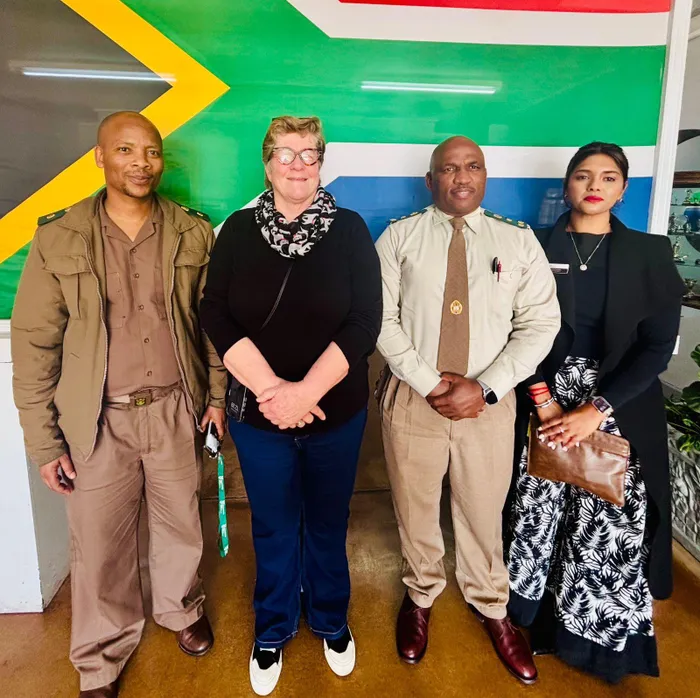How collaboration is transforming data collection in Ward 71

Government partners joined forces in Ward 71 to update population data for service delivery. From left, Mkhanyisi Sphendu, Department of Correctional Services, communications manager, ward councillor Carolynne Franklin, Zamikhaya Ncamazana, Department of Correctional Services, acting area commissioner, and Evashnie Govender, Statistics South Africa, Cape Metro, district manager.
Image: Supplied
Ward 71, long regarded as a challenging area to survey, has become a model of how cooperation between government entities can overcome obstacles and yield meaningful results.
The Continuous Population Survey (CPS) frame update project, led by Statistics South Africa (Stats SA), brought together the City of Cape Town, the Department of Correctional Services and local leadership to ensure every structure in a sampled area of the ward was recorded.
A breakthrough occurred when the team gained access to part of the Pollsmoor Prison yard, which falls within the survey frame.
This was made possible through close collaboration between Ward 71 councillor Carolyn Franklin, Statistics South Africa and the Department of Correctional Services.
Evashnie Govender, district manager for Statistics South Africa in the Cape Metro, said the project showed how vital collaboration is for accurate data collection.
“Without the buy-in from residents and the support of government partners, we can't gather the information that is essential for planning and policy-making. Accurate statistics are critical to ensuring that communities receive the services they need and deserve,” she said.
Ms Govender explained that surveying Ward 71 had been especially difficult.
“Communities are reluctant to open their doors due to safety concerns, lack of trust in government, and not understanding that participation is compulsory. Added to this are high mobility, security restrictions and complex living arrangements, which made it more difficult to reach every household,” she said.
She added that reliable information was crucial for better planning.
“Accurate data is the foundation for effective planning. It allows government departments to allocate resources fairly, address service delivery gaps, and ensure communities like Ward 71 are not left behind,” Ms Govender said.
Councillor Franklin emphasised how correct data affects funding.
“Accurate data enables an equitable share of national government funds to be disbursed to the province and to the City of Cape Town. Just like failing to report crimes to SAPS results in fewer resources allocated to police stations, if residents do not cooperate with surveys, fewer resources come to the City,” she said.
She warned against shutting out survey officers.
“Hiding behind gated complexes or disconnected doorbells, and refusing to engage with Statistics South Africa data collectors is self-defeating and irrational,” she said.
“It is only with collaborative efforts such as this that we will remain a functional and sustainable city into the future, where our rates burden is lessened due to funds coming from national government, as it should be.”
The CPS frame update underpins all future surveys, from unemployment to living conditions and census data.
Ms Govender said, “The updated frame ensures that every future survey is built on accurate foundations. This means better evidence for planning and policy-making in Cape Town.”
For Statistics South Africa, one of the most rewarding outcomes was building trust.
“The most rewarding part was knowing we built an accurate frame that will ensure better data collection and higher response rates. This was only possible because of the diverse stakeholders who assisted and the residents we engaged with along the way,” she said.
“Data tells the story of our city. Every voice and every structure counts,” Ms Govender said.
Related Topics: